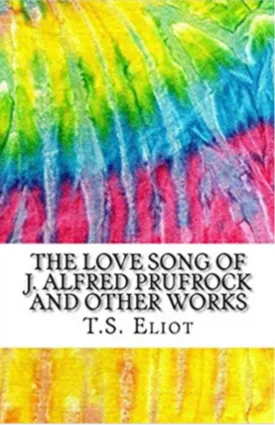T. S. Eliot
T. S. Eliot (1888–1965) was a groundbreaking poet who changed the course of English literature. His complex and enigmatic body of work remains one of the most influential works of the twentieth century.
One of the most important figures in modernism, Eliot was a highly educated and well-read individual, holding degrees from Harvard and Oxford, and having studied philosophy, literature and history. He received the Nobel Prize for literature in 1948 and was widely seen as a leader, rather than a follower, in twentieth-century literature.
Born in St. Louis, Missouri in 1888, Eliot’s childhood was marred by his parents’ divorce. After receiving a scholarship from Harvard University, Eliot studied at the school from 1906 to 1911, and then relocated to England, where he would eventually become a British subject in 1927.
In England, Eliot worked as an editor at a publishing house while studying Philosophy, the history of thought, and poetics. He also wrote poetry and collaborated with many of the leading poets of his day, including Ezra Pound, William Butler Yeats and Robert Graves.
Eliot's first big hit was The Waste Land, in 1922, one of the most influential poems of the twentieth century. The Waste Land is filled with allusions to many literary classics, as Eliot weaves together a bleak, urban landscape of displacement, disillusionment and despair.
The poem’s fragmented form, direct use of popular slang and urban imagery, and its probing of psychology, combined to create one of the most revolutionary works of poetry in the period. The poem won Eliot the Nobel Prize for Literature in 1948.
Eliot’s other works include Four Quartets (1936-1942) which further explores the themes found in The Waste Land, as well as his play Murder in the Cathedral (1935). Four Quartets, in particular, is concerned with time, human suffering, and the search for redemption.
Eliot’s writing style is marked by his use of obscure allusions and symbols, often drawing on elements from mythology, literature, music, and science. He also developed a unique style of blending philosophy, mythology, and psychology in his works.
In his later years, Eliot became increasingly tied to the Conservative Party in England and the Episcopal Church, establishing himself as something of a political and religious figure. His later works, including Burnt Norton (1936), East Coker (1940) and Old Possum’s Book of Practical Cats (1939) reflect his new found interests.
T. S. Eliot was an influential and ambitious figure in the early twentieth century. His works remain the standard for modernist poetry and continue to provide the backdrop for many contemporary works. Eliot’s poetry stands as one of the most complex and enigmatic collections of modern times, and his influence and achievements are still seen and celebrated today.

